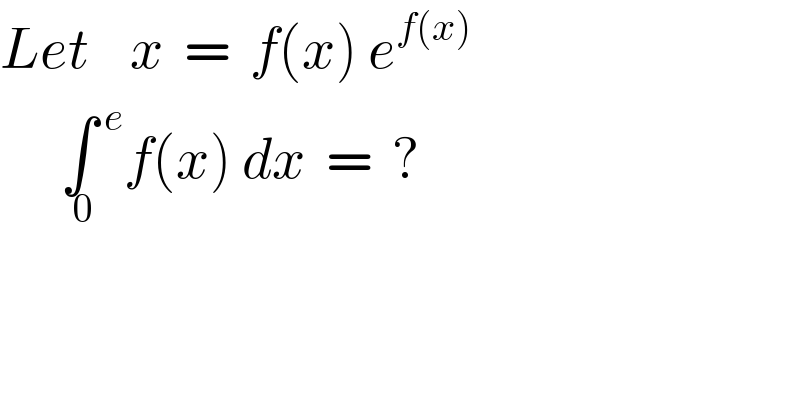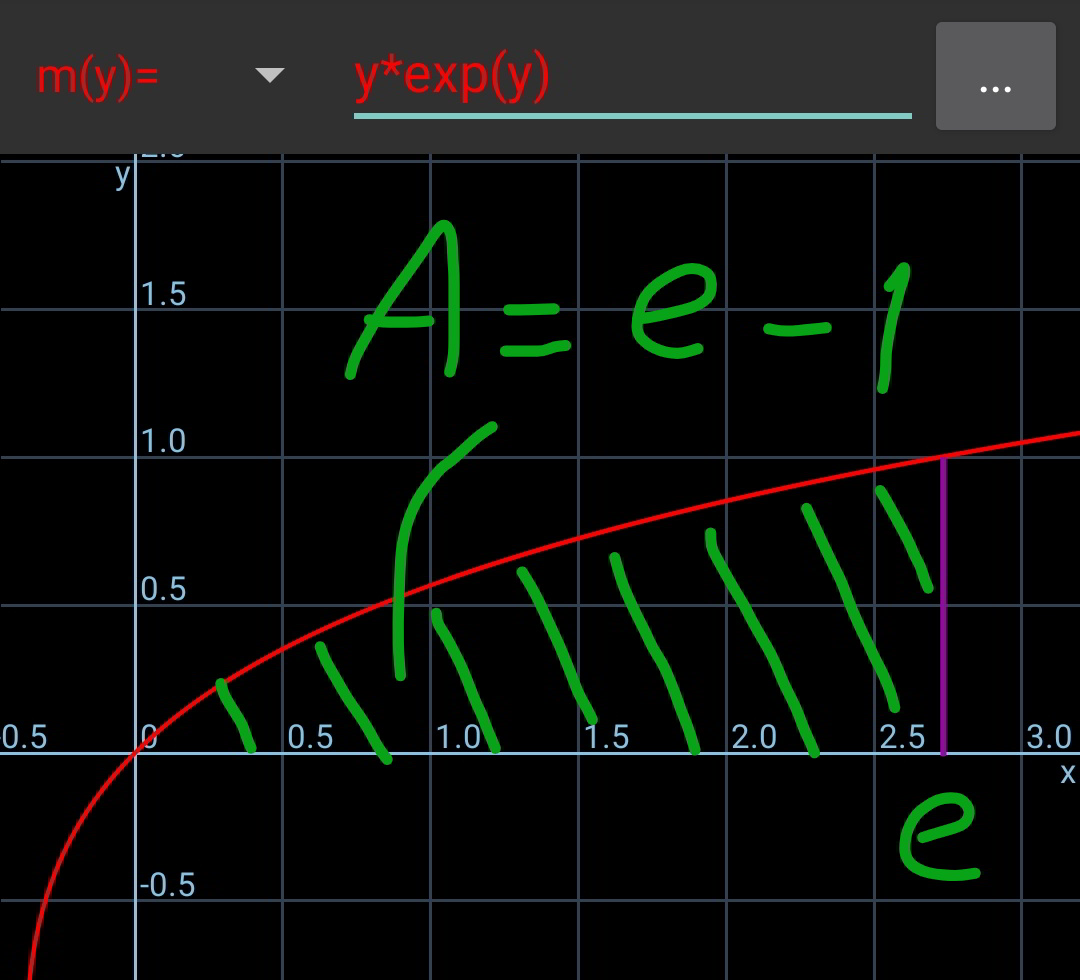
Question and Answers Forum
Question Number 72296 by naka3546 last updated on 27/Oct/19

Commented by naka3546 last updated on 27/Oct/19

Commented by mr W last updated on 27/Oct/19

Commented by mind is power last updated on 27/Oct/19

Commented by mr W last updated on 27/Oct/19

Answered by mind is power last updated on 27/Oct/19
![∫f(x)dx=[xf(x)]−∫xf′(x)dx x=f(x)e^(f(x)) ⇒1=(f′(x)+f′(x).f(x))e^(f(x)) ⇒f′(x)=(1/((1+f(x))e^(f(x)) ))=((f(x))/(x(1+f(x))))⇒xf′(x)=((f(x))/(1+f(x))) ⇒∫f(x)dx=xf(x)−∫((f(x))/(1+f(x)))dx let u=f(x) ⇒du=f′(x)dx=((f(x))/(x(1+f(x))))dx x=f(x)e^(f(x)) =ue^u ⇒du=(u/(ue^u (1+u)))dx⇒dx=((ue^u du)/u).((1+u)/) ∫((f(x))/(1+f(x)))dx=∫(u/(1+u)).((ue^u du)/u).(1+u)=∫ue^u =(u−1)e^u +c =(f(x)−1)e^(f(x)) +c=x−e^(f(x)) +c=x(1−(1/(f(x))))+c ⇒∫f(x)dx=xf(x)−x(1−(1/(f(x))))+c=x(f(x)−1+(1/(f(x))))+c ∫_0 ^e f(x)dx=e(f(e)−1+(1/(f(e)))) f(e)e^(f(e)) =e=1.e^1 ..z f(t)=te^t ⇒f′(t)=(t+1)e^t ≥0 ∀t∈IR^+ f(1)=e⇒xe^x =e⇔x∈{1} z⇒f(e)=1 ∫_0 ^e f(x)dx=e(1−1+(1/1))−lim_(x→0) x(f(x)−1+(1/(f(x)))) (1/(f(x)))=(e^(f(x)) /x) x(f(x)−1+(1/(f(x))))=x(f(x)−1+(e^(f(x)) /x))=x(f(x)−1)+e^(f(x)) lim_(x→0) x(f(x)−1)+e^(f(x)) =e^(f(0)) f(0)e^(f(0)) =0⇒f(0)=0⇒e^(f(0)) =1 ∫_0 ^e f(x)dx=e−1](Q72363.png)
Commented by mr W last updated on 27/Oct/19

Commented by mr W last updated on 27/Oct/19

Commented by mind is power last updated on 27/Oct/19

